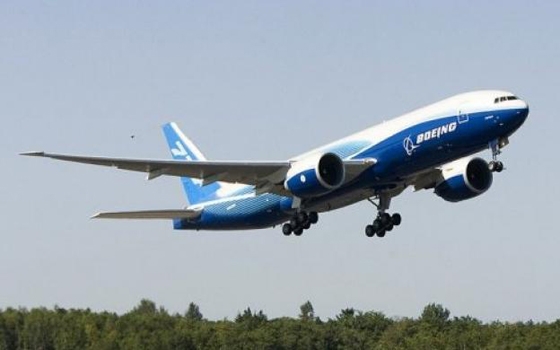Boeing has 649 purchase orders in the Middle East region as of June 2013 of various models with a main focus on 787s-Dreamliners and 777s, Jeff Johnson, Boeing Middle East President, told Gulf News. “As of June 2013, we have 126 purchase orders for the 787s model, 271 for 777s, 71 for 747s and 181 for the 737s model,” said Johnson.
He added that the UAE is the third largest customer for Boeing, after North America and China, with Emirates Airlines and Etihad Airways leading the market.
“As of June 2013 we had orders for 139 planes from Emirates Airlines for 777s of which we had delivered 76 and 63 are to be delivered,” said Johnson.
The president pointed out that Qatar Airways is the second airline in the Middle East in terms of orders.
“They have ordered 74 planes of which 30 are 787s and 44 are 777s,” said Johnson. “We had delivered six of the 787s and 36 of the 777s and the other 32 are to be delivered.”
With regard to Etihad Airways, they have 62 orders: 41 787s and 21 777s. “We had delivered 19 of 777s to Eithad Airways and 41 others of 787s and 2 of 777s will be delivered end of 2014,” he said.
Johnson added that they had 51 orders from Saudi Arabian Airlines, eight of which are 787s and 43 are 777s.
“We had delivered 30 planes of the 777s while eight of the 787s and 13 of the 777s are to be delivered,” said Johnson.
He reiterated that Boeing had 50 orders from Flydubai to purchase 737s, saying that the company had delivered 29 and the remaining 21 will be delivered.
Johnson pointed out that they have 16 orders from Gulf Air, seven orders from Royal Jordanian and 41 orders from the Republic of Iraq.
He added that the company had received 1,495 orders for the 737 Max, which will be delivered by Q3 of 2017.
He said that the net commercial airplane orders in 2012 reached 1,203 — deliveries were 601, the unfulfilled orders were 4373.
“Over the next 20 years, there will be a demand for 35,000 planes and this is worth Dh17.6 trillion ($4.8 trillion),” said Johnson. “The Middle East region requires more 2610 planes over this period. The new aviation orders will be worth $550 billion in the Middle East region over the next 20 years.”
Boeing had earlier announced that world air cargo traffic will grow 5.2 per cent annually and that the number of airplanes in the worldwide freighter fleet will increase by more than 80 per cent during the next 20 years, as demand for air cargo services more than doubles.
“The role of large freighters will increase as the large freighter share of the fleet rises to 36 per cent by 2031, compared to 31 per cent today and 22 per cent a decade ago,” Boeing said. “The significant efficiency and capability advantages of large freighters will enable carriers to manage projected traffic growth without increasing the number of airplanes proportionately.”
Last February, Boeing and Abu Dhabi Autonomous Systems Investments Company (Adasi), a Tawazun subsidiary, signed a teaming agreement for the two companies to address the growing Middle East market for unmanned systems, with prospects to expand into the Middle East and North Africa.
Boeing and Mubadala Aerospace announced in 2012 a Dh3.68 billion ($1 billion) 10-year direct contract for Strata Manufacturing, Mubadala Aerospace’s advanced composite aerostructures facility in Al Ain, to produce commercial composite aerostructures for the 777 and 787-Dreamliner.
Gulf News
15 July






















































